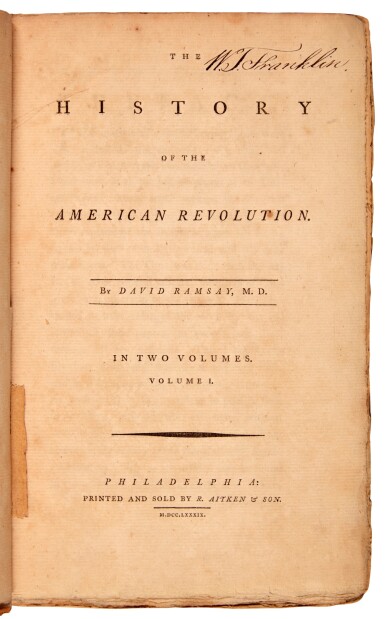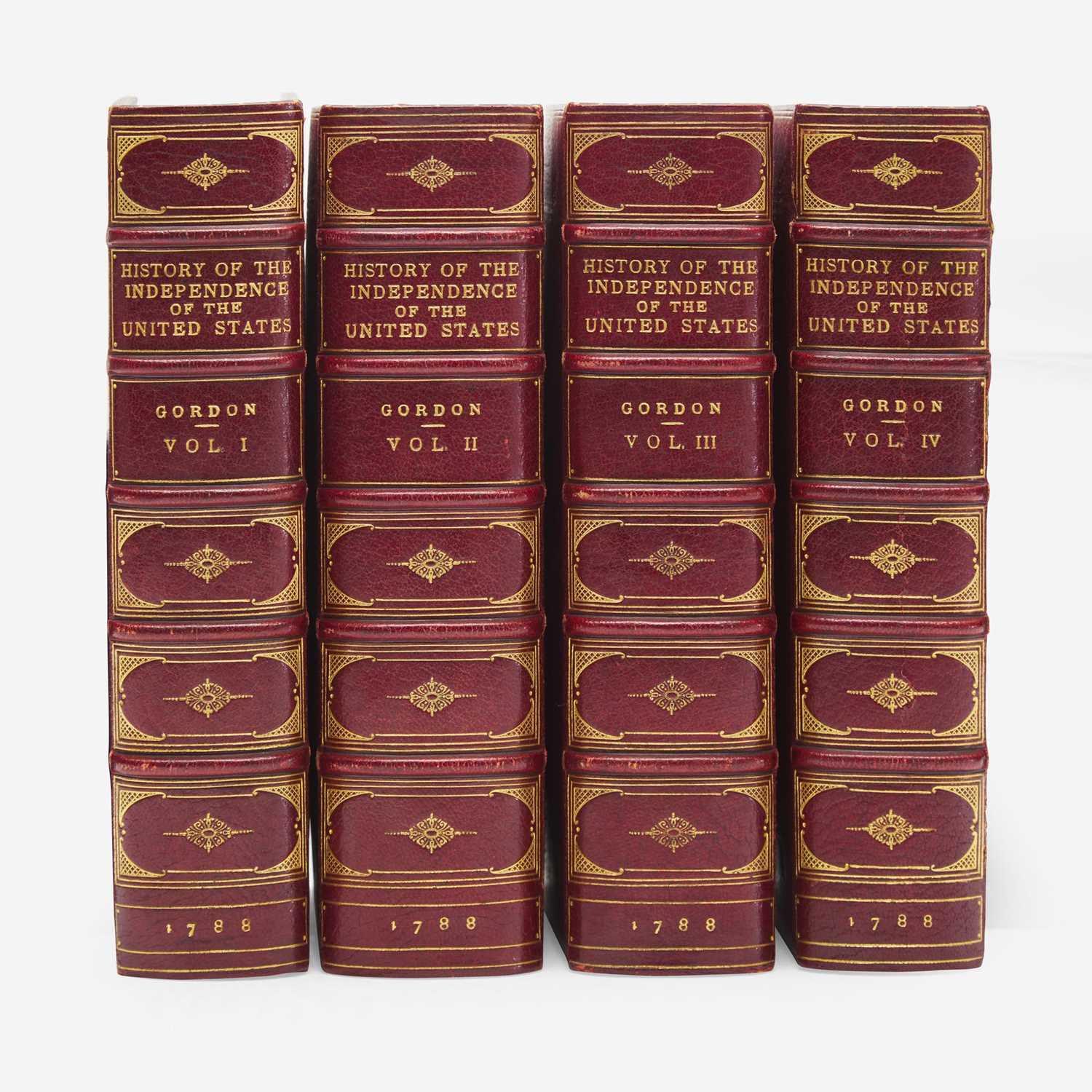Rare Revolutionary War Broadside Petitioning for the Release of Banished Quakers
A Testimony given forth from our Yearly-Meeting, held at Philadelphia, for Pennsylvania and New-Jersey...from the 29th Day of the Ninth Month to the 4th of...
(Philadelphia), 1777. Printed broadside, 10 1/4 x 7 3/4 in. (260 x 197 mm). Signed in type by Clerk Isaac Jackson; docketed on verso in manuscript, "1777". Creasing from old folds. Sabin 94920; Evans 15302; Hildeburn, Pennsylvania 3638; Smith, Friends’ Books I, p. 762; ESTC W5972 (locating only five institutions with copies)
A rare Revolutionary War broadside petitioning for the release of exiled Quakers held without trial under charge of a “Disposition inimical to the 'Cause of America'”, and disavowing a purportedly fabricated Quaker Address made to aid the British. Printed at the height of the war, this broadside addresses the issue of Quaker neutrality, and accusations made against them of having Loyalist sympathies. It reads, in part: “A Number of our Friends having been imprisoned and banished, unheard, from their Families, under a Charge and Insinuation that ‘they have in their general Conduct and Conversation evidenced a Disposition inimical to the Cause of America;' and from some Publications intimating that ‘there is strong Reason to apprehend that these Persons maintain a Correspondence highly prejudicial to the public Safety'…we think it necessary publicly to declare, that we are led out of all Wars and Fightings by the Principle of Grace and Truth..."
During the war Quakers faced persecution and economic hardship from non-Quaker Patriots and Loyalists for their pacifism and neutrality. Many Quakers refused to take up arms, pay taxes, or use Continental currency that they believed aided the conflict, and were viewed as being against the United States or worse, aiding the British. In 1777, Philadelphia Quakers refused to take an oath of loyalty to the state and lost their right to vote and hold office. When British forces threatened to invade Philadelphia later that year, Quakers refused to help provide for the city's defense or donate goods to Patriot soldiers, resulting in further alienation between Friends and non-Friends. In the fall of 1777 a likely fabricated letter from the Quaker Yearly Meeting at Spanktown, New Jersey (now Rahway) was intercepted and purported that New Jersey Quakers had given military secrets to the British. The Second Continental Congress responded by having 20 prominent Quaker men imprisoned and exiled for their supposed Loyalist sympathies. From September, 1777 through April, 1778, these men were incarcerated without trial in the frontier town of Winchester, Virginia. By the time of their return to Philadelphia seven months later, only 14 had survived their ordeal.
Rare Revolutionary War Broadside Petitioning for the Release of Banished Quakers
A Testimony given forth from our Yearly-Meeting, held at Philadelphia, for Pennsylvania and New-Jersey...from the 29th Day of the Ninth Month to the 4th of...
(Philadelphia), 1777. Printed broadside, 10 1/4 x 7 3/4 in. (260 x 197 mm). Signed in type by Clerk Isaac Jackson; docketed on verso in manuscript, "1777". Creasing from old folds. Sabin 94920; Evans 15302; Hildeburn, Pennsylvania 3638; Smith, Friends’ Books I, p. 762; ESTC W5972 (locating only five institutions with copies)
A rare Revolutionary War broadside petitioning for the release of exiled Quakers held without trial under charge of a “Disposition inimical to the 'Cause of America'”, and disavowing a purportedly fabricated Quaker Address made to aid the British. Printed at the height of the war, this broadside addresses the issue of Quaker neutrality, and accusations made against them of having Loyalist sympathies. It reads, in part: “A Number of our Friends having been imprisoned and banished, unheard, from their Families, under a Charge and Insinuation that ‘they have in their general Conduct and Conversation evidenced a Disposition inimical to the Cause of America;' and from some Publications intimating that ‘there is strong Reason to apprehend that these Persons maintain a Correspondence highly prejudicial to the public Safety'…we think it necessary publicly to declare, that we are led out of all Wars and Fightings by the Principle of Grace and Truth..."
During the war Quakers faced persecution and economic hardship from non-Quaker Patriots and Loyalists for their pacifism and neutrality. Many Quakers refused to take up arms, pay taxes, or use Continental currency that they believed aided the conflict, and were viewed as being against the United States or worse, aiding the British. In 1777, Philadelphia Quakers refused to take an oath of loyalty to the state and lost their right to vote and hold office. When British forces threatened to invade Philadelphia later that year, Quakers refused to help provide for the city's defense or donate goods to Patriot soldiers, resulting in further alienation between Friends and non-Friends. In the fall of 1777 a likely fabricated letter from the Quaker Yearly Meeting at Spanktown, New Jersey (now Rahway) was intercepted and purported that New Jersey Quakers had given military secrets to the British. The Second Continental Congress responded by having 20 prominent Quaker men imprisoned and exiled for their supposed Loyalist sympathies. From September, 1777 through April, 1778, these men were incarcerated without trial in the frontier town of Winchester, Virginia. By the time of their return to Philadelphia seven months later, only 14 had survived their ordeal.









.jpg)
.jpg)
.jpg?w=400)



Testen Sie LotSearch und seine Premium-Features 7 Tage - ohne Kosten!
Lassen Sie sich automatisch über neue Objekte in kommenden Auktionen benachrichtigen.
Suchauftrag anlegen